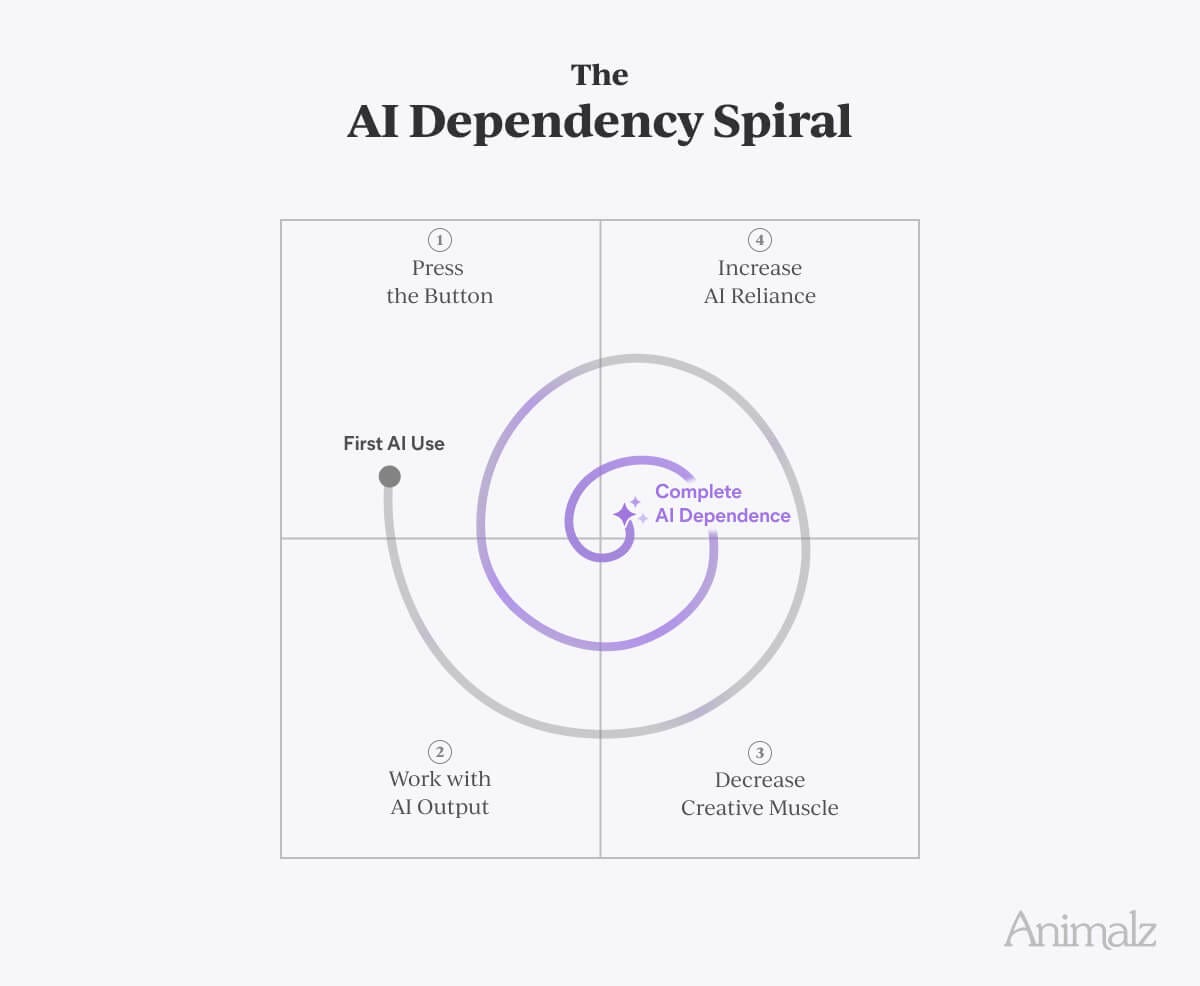AI Burnout Is Real
Feeling overwhelmed by the constant stream of AI updates? You're not alone. Here's how to cope with the algorithmic treadmill.
Anyone else feeling AI whiplash lately? New models, new tools, new features — sometimes it feels impossible to keep up on the algorithmic treadmill.
You’re not alone. My previous We Eat Robots newsletter about coding with AI got two types of responses:
This is so exciting.
This is so exhausting.
And quite a few folks expressed feeling both. Just look at a few highlights from the past, what, two (??) weeks:
Grok 3, Claude 3.7, and GPT-4.5 dropped.
Coding agents from both Cursor and Replit got major upgrades.
Grok and Perplexity added deep research features.
Tons of new apps came out or got popular, like Flora (a platform for designing with AI).
The DeepSeek moment already feels like ancient history, but it was just over a month ago.
Even those working with AI full-time struggle.
, SVP Marketing at HubSpot, shared he feels the pace is almost too much.What to do?
🔥 Fight fire with fire
, Chief Content Officer at Marketing AI Institute, used OpenAI's Operator agent to scroll through his social media, study his bookmarks, and save only content that matched his interests.The result is a curated social reading list with tailored to his interests. This approach echoes an idea I wrote about a few weeks ago, where we’ll have AI agents help us manage all the overload — filtering and managing the mundane, unwanted, and low value aspects of our (work)life so we can be more present, effective, and fulfilled.
🎯 Focus
In the same post referenced earlier, Kieran recommends to focus. Pick a couple of personal projects and really dig deep with AI there. Don’t try to master every new model or capability.
Ask yourself before tackling any task if AI can help, or better yet, ask AI directly what it can do for you — Kieran’s tip: “Give AI your job description and ask it to break down all tasks associated with that job and then tell you how it can automate each one.”
🧘 Take intentional AI breaks
Much like we need digital detoxes from our phones and social media, we're going to need intentional breaks from AI tools.
Extended periods of working with AI push you into a kind of overdrive — making progress so quickly that you miss crucial details or head in suboptimal directions. You might recognize this when your thinking becomes buzzy or fuzzy; it feels a bit like drinking too much coffee.

Scheduled AI breaks are the answer. Step away from the the algorithms to think independently, reconnect with your own creativity, and prevent what I call the "dependency spiral" where over-reliance on AI gradually diminishes your own capabilities.
Without these intentional pauses, we risk becoming mere operators of increasingly powerful tools rather than skilled practitioners who know when to use them — and when not to.
📆 Reserve time daily or weekly to stay up to date
You can get some peace of mind by scheduling dedicated time during which you read up on and experiment with the latest AI developments. By putting this on your calendar, you’ll know that that’s the time when you keep up.
I've found that scheduling a dedicated 25-minute block each morning (one Pomodoro) before checking messages or starting other work is ideal. If I try scheduling these blocks later in the day, they rarely happen.
For more on this, read AI Transformation: A Soothing Framework for Adapting to the Future.
How do you cope with AI overload?
Share your struggles and strategies for beating AI burnout in the comments. We're all figuring this out together, and your approach might be exactly what someone else needs to hear!
What’s on my human mind
Here’s stuff I’ve been reading and thinking about.
New episode of The Animalz podcast with Nathan Baschez: Today (Tuesday at 6 am EST) we release our conversation with
, founder of Lex (an AI writing tool I use to write this newsletter). Nathan shares his take on why we're at "the bottom of the S-curve" for AI adoption among writers and offers practical methods like his "brain dump" technique for leveraging AI while maintaining your unique voice. If you're feeling that AI burnout I mentioned above, his balanced perspective is refreshing.Why Don't More Writers Use AI? Speaking of Nathan, his annual Lex letter to readers explores the hesitation many writers feel about AI tools. He makes a compelling comparison to how programmers adopted AI much faster, and what content creators might learn from that approach.




